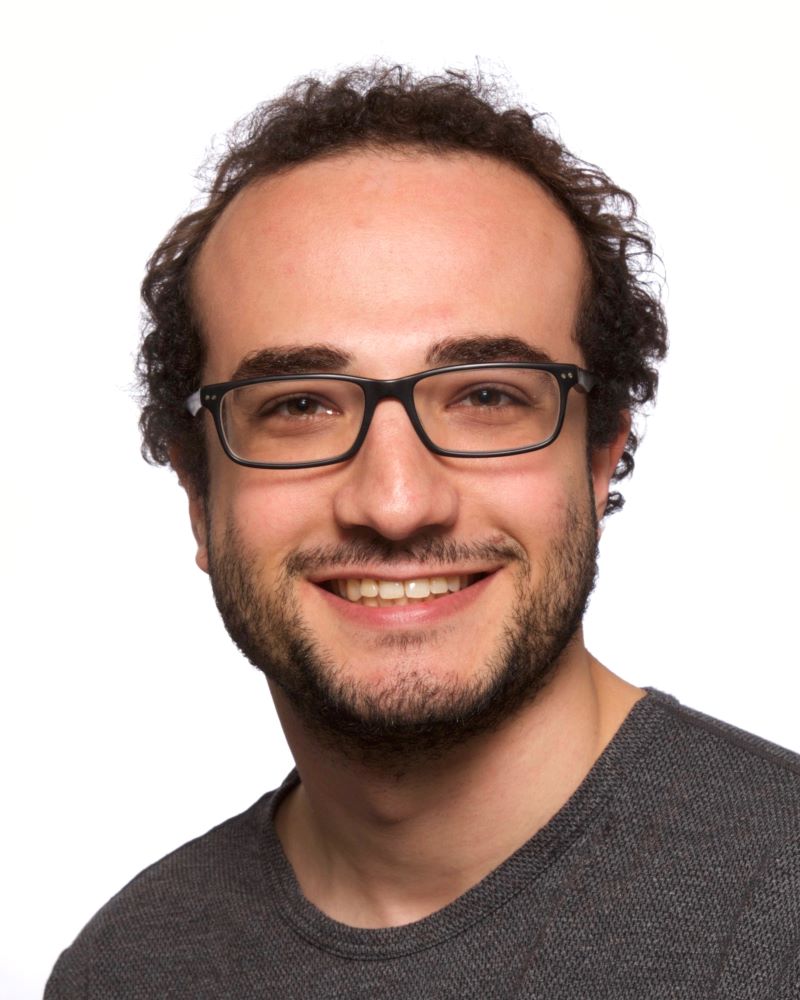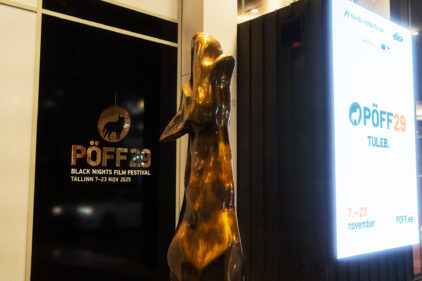The London Film Festival sprawls across the city, from the café-laden streets of Shoreditch to the glamour of Southbank, by the Thames. Cult cinemas like the Prince Charles and megaplexes like the Odeon off Leicester Square premiere films from around the world. This year, festival darlings like Sally Potter (“The Party”) and Azazel Jacobs (“The Lovers”) found themselves front and center against a backdrop of drama, comedy and experimental art.
This was my first time navigating the London Film Festival, and I arrived with two goals in mind: first, to see as many animated films as I could, and second, to follow word-of-mouth to hidden gems. I was certainly successful in my pursuit of animation which took me globetrotting through films from Japan, Germany, Ireland and France. But it was my first movie of the London Film Festival, “The Breadwinner,” that set an impossibly high standard for the remainder of the event.
“The Breadwinner” comes from Nora Twomey of Cartoon Saloon, an animation house based in Kilkenny, Ireland. Cartoon Saloon and their international collaborators made a name for themselves with an Oscar nomination for “The Secret of Kells” back in 2009, a fantastical retelling of how the Book of Kells was authored. In 2014, they landed another nomination with “Song of the Sea,” a somber tale of family and loss set in an aquamarine storybook facsimile of reality. In 2017, following a co-directing credit on Kells, Twomey has ventured out as sole director and taken the Saloon’s focus away from the Emerald Isle for a portrait of Afghanistan.
The film retains many of the hallmarks of Cartoon Saloon: boldly stylized characters and heavy themes paired with bittersweet triumph. But this is simultaneously a new kind of film with fine line work mimicking Arabic calligraphy, clothes with complex effects imbuing tactility and intricate light play as the lead character, Parvana (Saara Chaudry), races through Afghan markets. Even the color palette, a far cry from the dark forests of Kells and the ocean blue of Sea, rests on subtle golds and browns, only pausing for splashes of color from food and candy: the ultimate treasure for “The Breadwinner'”s young protagonist.
Twomey and her team, many of whom hail from an Afghan background, manage to tell a convincing story of female empowerment in Taliban-controlled Kabul. This is a harrowing story of a young girl who is forced to pretend to be a boy just to be treated with humanity. She finds a way to support her family while forces beyond her control work to tear them apart. From her mother (Laara Sadiq), whose defining moment comes as she stares down an attacker with a burning stick in hand, to Parvana herself, “The Breadwinner” reframes questions of gender equality in an environment where standing up can mean death.

Quite contrary to “The Breadwinner,” which I had anticipated for several years, I found crime thriller “Let the Corpses Tan” entirely on accident. The film screened at Rich Mix cinema, my local independent theater, and I chose it at random between two LFF films which were set to show at the same time. It took me awhile to grasp the film’s direction having read nothing about it beforehand, but I was deeply pleased to have found it. “Let the Corpses Tan” is an outstanding effort from French directing duo Hélène Cattet and Bruno Forzani.
Corpses uses every cinematographic trick in the book to accentuate a simple premise. A reclusive artist named Luce (Elina Löwensohn) hosts several mysterious guests at her rundown estate in Corsica. The idyllic setting quickly reveals a tale of robbery and murder, spinning the film into a whirlwind of bullets as the clock winds down.
Manuel Dacosse’s sharp camerawork is entrancing. He guides our eyes as we pass through a bullet hole in a painting to gaze at a spectacular Mediterranean Sea. He forces us to watch as he tracks between characters staring each other down at a meal, their faces getting closer until they’re nearly touching. Through his lens, blood becomes paint, murder becomes butchery and sex mimics hanging meat.
These shots would be for nothing if not held together with fluid editing to keep up unrelenting tension—and, it should be noted, a deeply twisted sense of humor. In one memorable cutaway, a bird’s eye view of the estate is a drawn map; as a frenetic shootout unfolds below, an off-screen woman drops ants onto the map, their hustle and bustle mirroring the action of the main characters. These moments are balanced with both extreme violence and concerted beauty: one gunman wanders through pitch black night as embers dance around him, only to conclude with a gruesome end of melted gold and dripping blood.

Following buzz, it would be hard to ignore it the decidedly more innocent “The Florida Project” from filmmaker Sean Baker. The film highlights the phenomenon of low-income families living full time in cheap motels in America. We watch as a world of adult poverty swirls around Moonie (Brooklynn Prince), a young girl whose mother, Halley (Bria Vinaite), struggles to put food on the table.
It’s a heartbreaking film that offers a clear-eyed look at the cycle of poverty. Halley isn’t a bad mother, and the kindhearted motel manager, Bobby (Willem Dafoe), knows that she’s doing her best. She seemingly takes time out of every day, no matter how hard or painfully she works, to make sure Moonie is engaged, entertained and protected. But that isn’t enough and Bobby is forced to run interference for her time and again. The film builds toward a breaking point that Moonie, who merely parrots adult language, never truly understands.
Baker was in London with leads Bria Vinaite, Brooklynn Prince and Valeria Cotto (all wearing billowing dresses befitting royalty), along with surprise guest, Willem Dafoe. In a post-film Q&A, Baker revealed pieces of the film were improvised while other scenes featured candid footage of his actors in character interacting with strangers. The easy chemistry between Dafoe and Vinaite and their younger counterparts was evident as they bounced back and forth with laughter and anecdotes.
But it was toward the end of the night that Baker made an earnest plea: he wants a social rights campaign to emerge from his film. “Housing is a fundamental human right,” he said. Few movies make a better case for his call to arms than “The Florida Project.”

I continued to ricochet back and forth between east and west London for the remainder of the festival. At BFI Southbank, I caught David Claerbout’s “The Pure Necessity”—a deconstructed version of “The Jungle Book” (1967) scrubbed of all dialogue and personification. It was an intriguing idea that questions fundamental ideas of where we find life in animation, although in execution the film felt perhaps unintentionally stilted. “The Pure Necessity” was accompanied by an excellent sci-fi short film called “Urth,” which harkens to “La Jetée” as a lonely scientist (Janice Kerbel), trapped in a biosphere on some impossibly-polluted future Earth, monologues through diary entries.
I was less enamored with “Mutafukaz,” a French-Japanese animated picture that feels like a stylized 2 A.M. Adult Swim short stretched to feature length. It’s an attractive film that feels at times like street art come to life. Yet for all of its well-drawn hyper violence, the liberal use of flashpoint cultural iconography in “Mutafukaz” rarely offers more than what you see: sound and fury, signifying nothing.
It was refreshing days later to dive into the abstracted mermaid world of “Lu Over the Wall,” a film from Adventure Time veteran and Kaiba creator Masaaki Yuasa. Here’s a film which overlaps with aspects of “Ponyo,” that other wonderful mermaid adventure, but takes the coming-of-age story in a musically-charged direction rife with humor and soul while navigating the perilous shores of xenophobia and loss.
It was a joy to hear from so many directors discussing their films with an international audience of students, journalists and film lovers. Azazel Jacobs offered fascinating anecdotes about how he managed to build his dream cast for the amiable if forgettable “The Lovers.” In a markedly cuter environment, Patrick Imbert of “Ernest and Celestine” fame fielded questions from an audience of children about his favorite barnyard animals. His new movie, the painterly “The Big Bad Fox and Other Tales,” was a hit with his target demographic and I found myself laughing at the mischief right along with them.
The last film I caught at London Film Festival was “The Party” from Sally Potter. It’s a short movie clocking in at just 71 minutes and it’s paced like a one-act play: the perfect end to a long week. “The Party” is a fantastic showcase for Cillian Murphy, whose trademark anxiety here works in favor of dark comedy. Opposite, Patricia Clarkson’s sardonic admonishments grow increasingly barbed as the night spins out of control.












